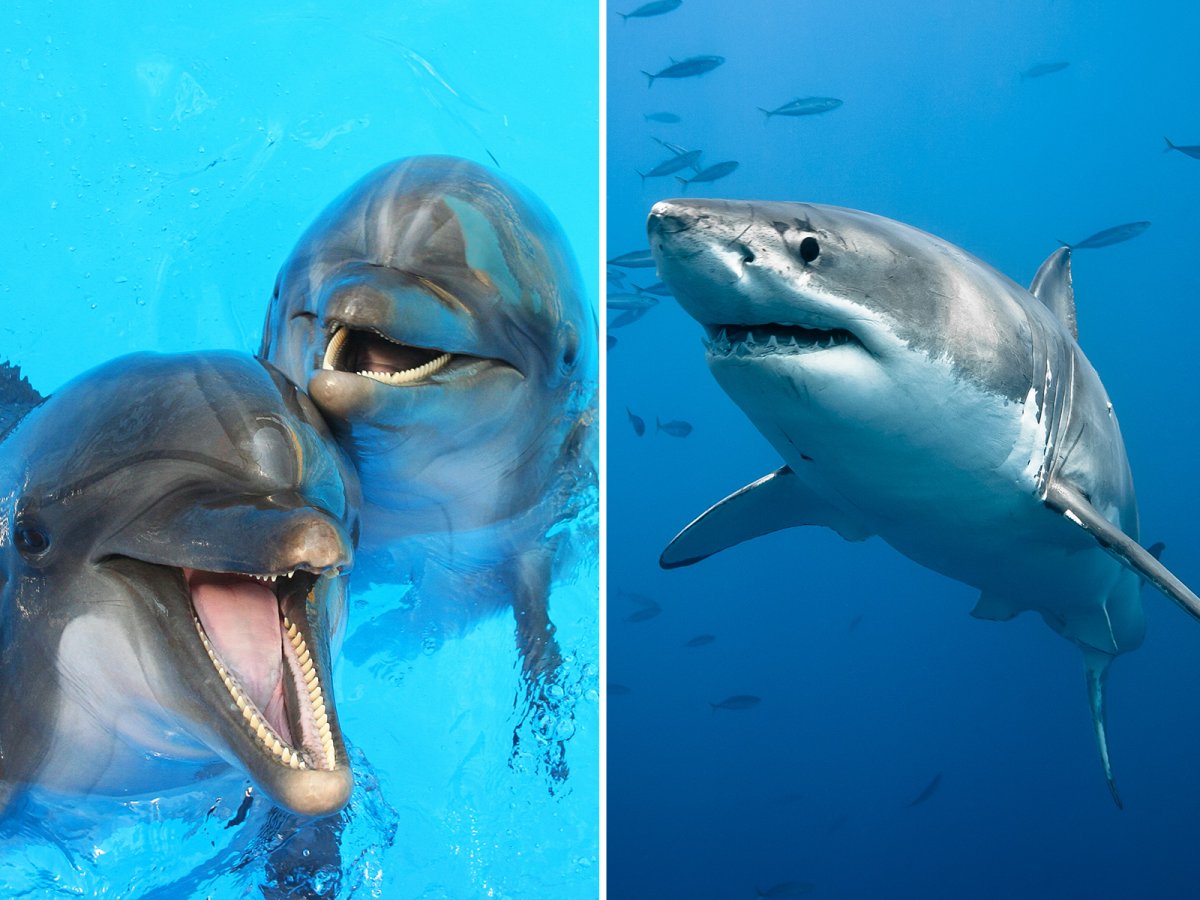Dolphins tried to "push" an Australian surfer to shore while he was being stalked by a 20-foot shark.
Bill Ballard was surfing at Wallagoot Beach, on the New South Wales coast, on September 25 when he noticed that the dolphins—which were feeding on a swarm of salmon in the area—began acting differently than usual, The Courier reported.
Ballard had encountered dolphins in the area before, so he was well versed in their usual behavior. "It's hard to describe, but they kept coming up to the surface to look at me and also began swimming back and forward, coming closer and trying to push me towards the shore," he told the Australian newspaper.
Shortly afterward, an aircraft—which had been watching the dolphins' feeding frenzy from above—swooped down to warn him that a 20-foot shark was lurking in the waters nearby, The Courier reported. As the two passengers hung out of the low-flying aircraft, they screamed at Ballard, "Shark, shark!" and pointed at a large shadow of something swimming nearby.
Australia is one of the most likely places in the world for shark attacks to occur. In 2021, 12 unprovoked shark bites were reported, according to the Florida Museum of Natural History's International Shark Attack File. Sharks do not look to hunt humans, but dangerous encounters can occur. A shark may approach a surfer after mistaking it for something it may want to eat or out of curiosity.

In the New South Wales incident, the aircraft, which had flown too low to go up again, crashed into the water a few meters from the beach. Ballard, who had caught a wave that brought him to shore, went to check on the passengers' condition and spoke to one of them.
"She kept saying, 'That shark was so close to you, so close, and it was the biggest one I've ever seen. It must have been around 20 feet long,'" Ballard told The Courier. "I am so thankful. They were like guardian angels coming to save me.
"At first, I thought they must have mistaken it for a dolphin, and I kept asking if they were sure it wasn't, but the pilot said, 'No, I've been flying for years and I know exactly what a shark looks like," Ballard told the newspaper. Neither passenger was significantly injured in the crash.
The species of the shark was not confirmed, but Leonardo Guida, a shark scientist at the Australian Marine Conservation Society, told Newsweek that this area of Australia is home to several species, including the "iconic big three—white, tiger and bull sharks."
"Dolphins and sharks in the same area is not at all uncommon, as they tend to be after the same food or hunt in similar areas. Generally speaking, it's not in an animal's best interests to engage in conflict when it can be avoided, so it could be that the dolphins are keeping their distance and an eye on a potential competitor whilst still being able to get their fill of fish," Guida said.
He continued: "I'm not a dolphin expert nor do I know what a dolphin thinks, but the dolphins may have even seen the surfer as a possible competitor for food, and 'pushing' him to shore could have been a way of intimidating him to stay away from their food rather than protecting him from a shark."
Big schools of fish, including the salmon in the area, are a big drawcard for sharks, Guida said.
"They form a high concentration of a relatively easy-to-catch food. Australian salmon are actually one of the species of fish that can make up to around a third of the diet of juvenile white sharks on the east coast, and it's entirely possible one was in the area doing what it naturally does and following the school of fish," he said.
Uncommon Knowledge
Newsweek is committed to challenging conventional wisdom and finding connections in the search for common ground.
Newsweek is committed to challenging conventional wisdom and finding connections in the search for common ground.
About the writer
Robyn White is a Newsweek Nature Reporter based in London, UK. Her focus is reporting on wildlife, science and the ... Read more
To read how Newsweek uses AI as a newsroom tool, Click here.








